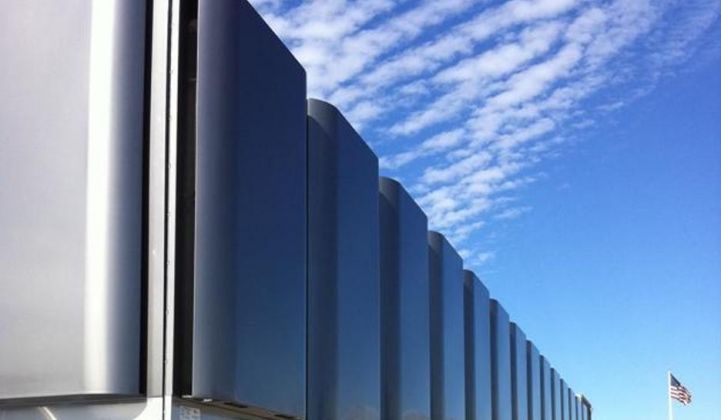First, a quick update on the list of profitable fuel cell companies. Here's the updated list:
1.
2.
3.
But now, finally, Bloom Energy is actually threatening to add its name to this long-vacant list in 2013.
Dan Primack of Fortune has revealed the financials of fuel cell vendor Bloom Energy with information culled from confidential documents shared with Bloom's "significant investors." (Primack is on a roll this week. He broke the story of Advanced Equities closing shop a few days ago, as well.)
After raising almost $1 billion in venture capital over a decade from GSV Capital, Apex Venture Partners, DAG Ventures, Kleiner Perkins Caufield & Byers, Mobius Venture Capital, Madrone Capital, New Enterprise Associates, SunBridge Partners, and Goldman Sachs, Bloom is suggesting that it will turn a profit in 2013.
According to the investor letter cited by Primack, Bloom had $101 million in pro forma Q3 revenue, while cost of goods was $106 million, along with $26 million in operating expenses. That's a loss of $42 million on a GAAP basis, along with a net cash loss of $80 million in the quarter. However, those Q3 numbers are hobbled by an inventory and timing issue, and cash burn dropped 56 percent between Q2 and Q3, according to Primack. The firm had a 26 percent quarter-over-quarter revenue increase.
Bloom CFO Bill Kurtz told Fortune in an official statement:
"Bloom Energy is pleased with the substantial progress we have made in 2012. On a pro-forma basis, Bloom has become gross-margin-positive in 2012 and is on track with our goal to be profitable in 2013."
The claim from Bloom's CFO suggests that Bloom is finally making money on every fuel cell it ships.
Bloom builds fuel cells of the solid-oxide variety with natural gas as the fuel. The units, which produce less pollution than burning natural gas, are intended for commercial and industrial applications, and the firm boasts an all-star list of customers, including Adobe, FedEx, Google, Coca-Cola, and Wal-Mart.
Bloom’s biggest single project, a 30-megawatt installation with Delaware utility Delmarva Light & Power, remains under attack in the courts. Nonprofit legal advocacy group Cause of Action filed a lawsuit accusing Delaware Governor Jack Markell and the Delaware Public Service Commission of unconstitutionally setting up a deal in which Bloom agreed to build its fuel cells in the state, and got exclusive financial and regulatory benefits in return. The lawsuit (PDF) also included competing fuel cell maker FuelCell Energy as a plaintiff.
Bloom also has a power purchase agreement arm to its business plan in which the firm sells kilowatt-hours rather than fuel cells.
Bloom still faces some risk, as does any cutting-edge technology company. Bloom's fuel -- natural gas -- is a commodity and subject to price increases. Bloom's business has relied on state subsidies for distributed energy, and subsidies expire. The long-term reliability of the fuel cell stack remains a risk. But in today's difficult cleantech business climate, it's grounds for cautious optimism. Bloom could demonstrate the viability of capital-intensive, VC-funded cleaner energy breakthroughs.



